- Menu
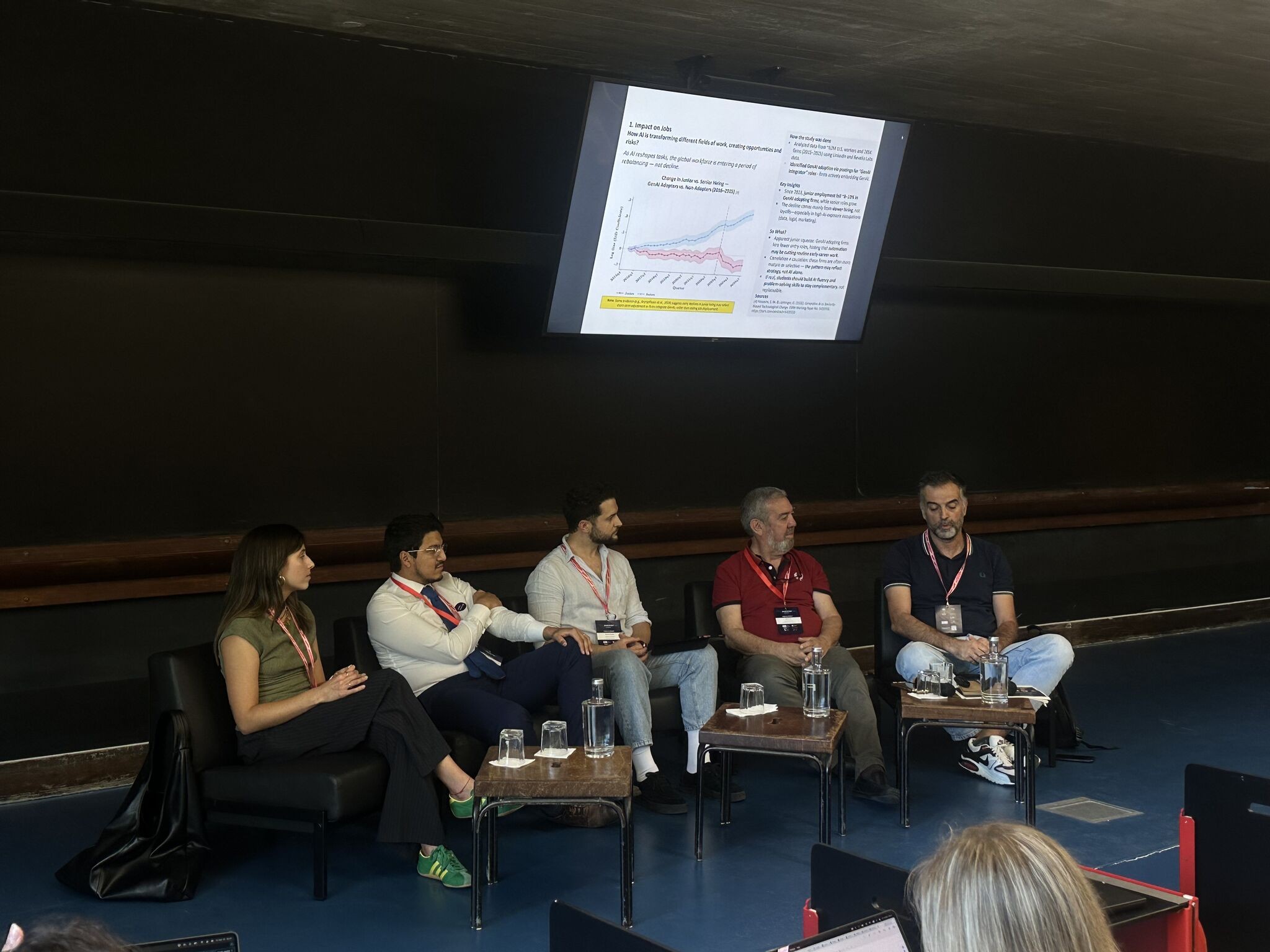
Promoting the exchange of experiences and knowledge in Data Science; this was the main objective of Data Powwow 2025.
30th October 2025

Miriam Seoane Santos, INESC TEC researcher and lecturer at the Faculty of Sciences of the University of Porto (FCUP), was recognised by her contribution to the responsible development of Artificial Intelligence (AI) systems: she is the first Portuguese scientist to win the international ERCIM Cor Baayen Award, which rewards early-career researchers in the fields of computer science and applied mathematics - - never awarded to Portugal, since its creation in 1995.
23rd October 2025

Work framed within the International Workshop on Semantic Evaluation 2025 included a comprehensive annotation process leading to the creation of a multilingual dataset, providing the basis for training models capable of identifying narratives in European Portuguese.
07th October 2025
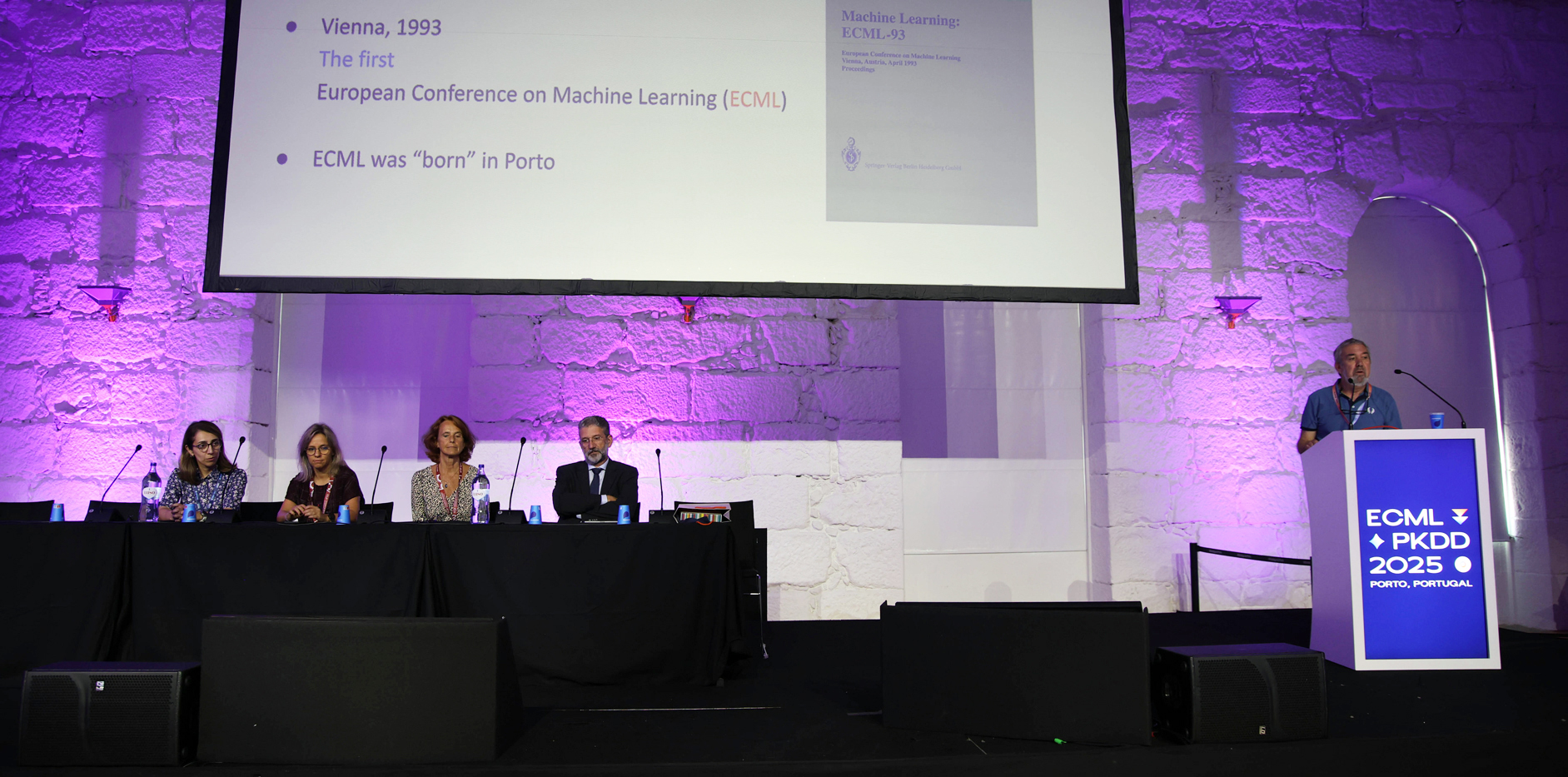
For five full days (from morning until night), close to 1,300 researchers from all over the world turned Porto into the epicentre of discussions that will shape the future of fields like machine learning and responsible AI. The largest European conference in the area could return to the city in 2035.
30th September 2025

How do we react to social media posts about climate change? This was the starting point of an international study featuring INESC TEC collaboration, analysing nearly two million posts on the social network X (formerly Twitter) published over 12 years in the Iberian Peninsula.
28th July 2025
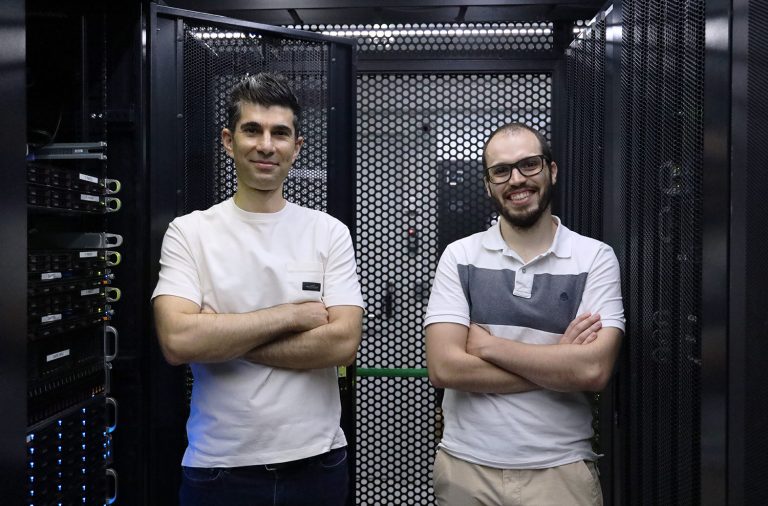
A team of researchers from INESC TEC, the Faculty of Sciences of the University of Porto, and the Barcelona Supercomputing Centre analysed 46 types of tissues from over 700 individuals. The team concluded that smoking impacts tissue architecture and can cause molecular changes not only in organs directly associated with smoke inhalation, e.g., lungs, but also in tissues from other organs, including the pancreas, thyroid, oesophagus, and specific regions of the brain. In many cases, the effects of smoking significantly overlap with those of ageing.
24th July 2025

Imagine being able to access Portuguese local election data in a structured and intuitive way, from 1976 to the present. This was the idea behind the platform A Minha Região - O teu portal autárquico, developed by INESC TEC researchers Rúben Almeida, Sérgio Nunes and Ricardo Campos, which won first place in the 2025 Arquivo.pt awards.
14th July 2025
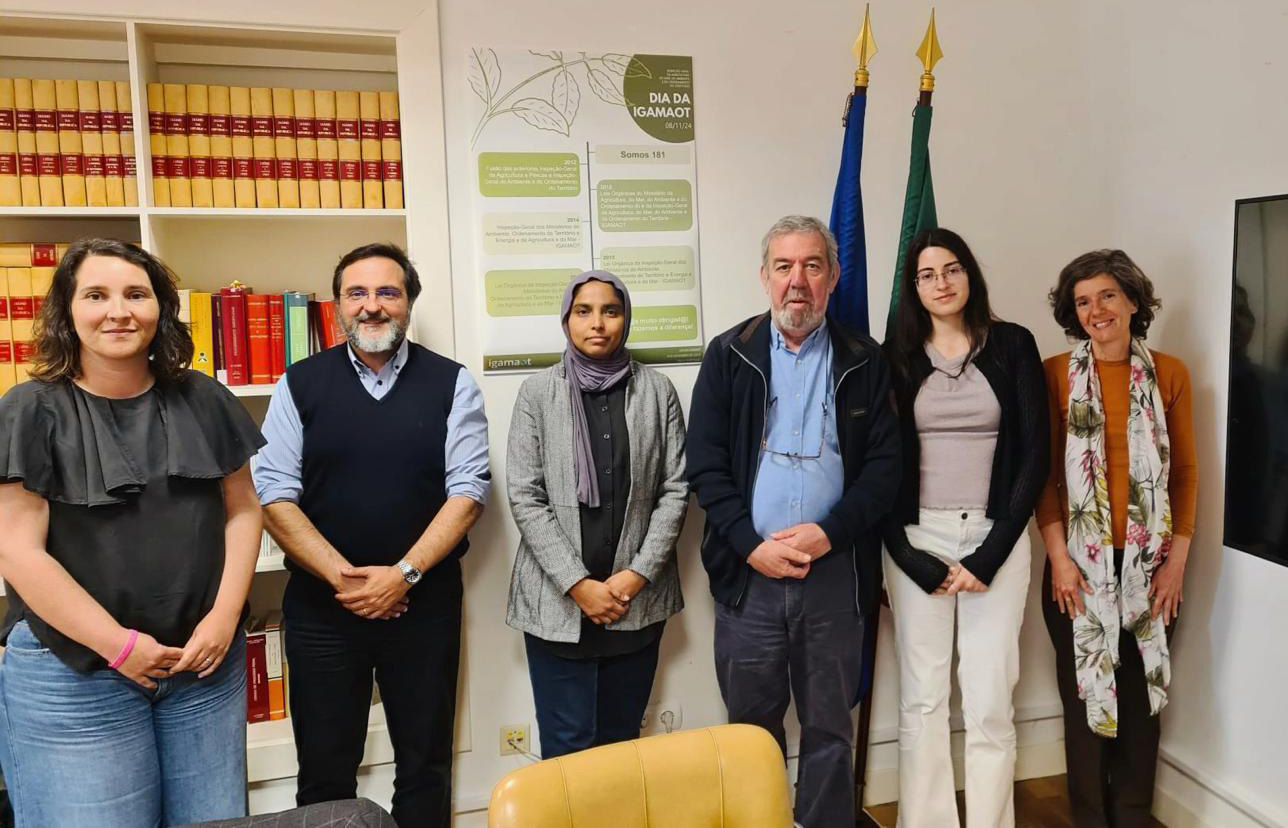
The EnSafe project (Enhancing Environmental Protection: Anomaly Detection in Waste Transportation using Network Science) is developing AI-based solutions to tackle environmental crimes, focusing on waste transportation chains. EnSafe benefits from the active involvement of INESC TEC, which is developing technologies to detect irregular and suspicious behaviours in a sector that is vulnerable to fraud and environmental corruption.
26th May 2025
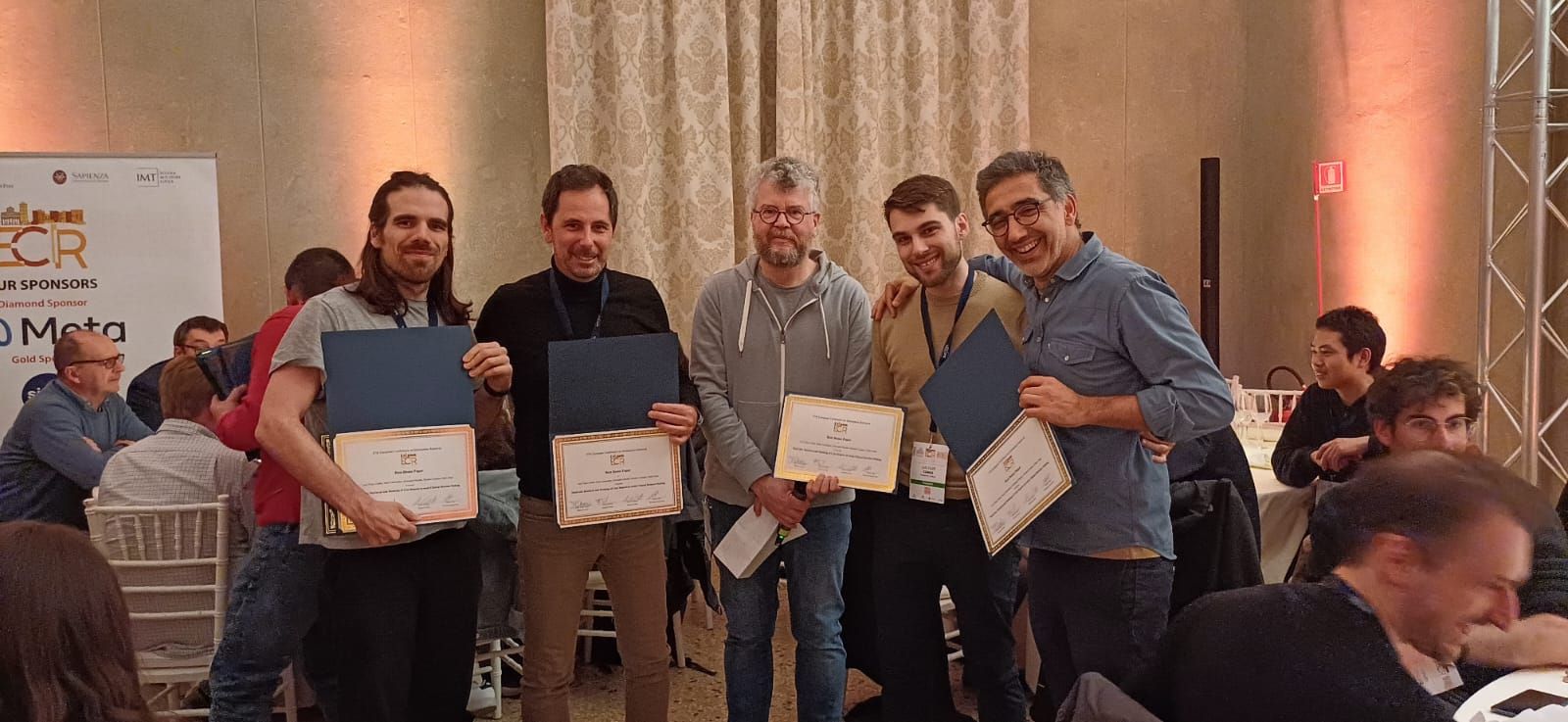
Supporting physicians in making complex and rare clinical decisions is the goal of MedLink, a tool developed by researchers at INESC TEC, which won the Best Demo Paper award at the European Conference on Information Retrieval—one of the most prestigious conferences in Europe in the field of information retrieval.
08th May 2025

It's hard to think of current technologies or innovations that do not resort to Language Models (LM) or Natural Language Processing (NLP). Their presence in various society domains - some with significant relevance, like the legal or healthcare sectors - raise issues (and concerns) that often end up focusing on the same question: are LM-based technologies reaching all communities? Recently, two scientific papers featuring INESC TEC - both accepted at AAAI, an A* conference - sought to address some of the challenges in this new era, which directly influence the Portuguese language.
28th February 2025

The seasonality of search queries in search engines could be a factor for online businesses to consider if they seek to improve the ranking of their results. A new demo-paper featuring INESC TEC explored the creation of a database to present the Occasion-aware Recommender solution.
26th February 2025
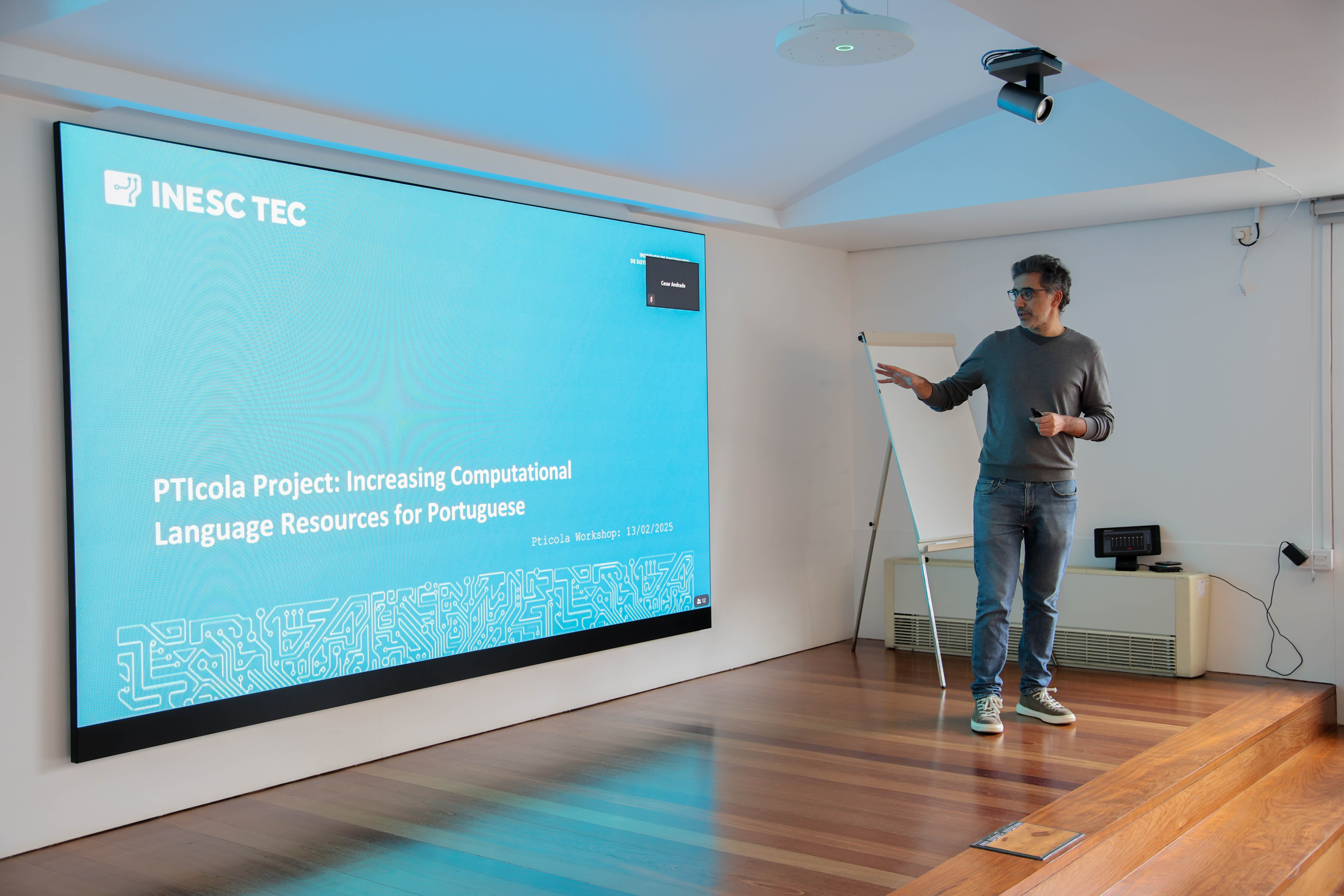
The main goal of the PTicola project was to expand and build new Natural Language Processing (NLP) capabilities for the Portuguese language. The results of this project - which include, for example, an English/European Portuguese translator and a PT-BR/PT-PT language variety identifier - address the gap in NLP resources available for PT-PT compared to PT-BR.
14th February 2025
The access to the final selection minute is only available to applicants.
Please check the confirmation e-mail of your application to obtain the access code.

